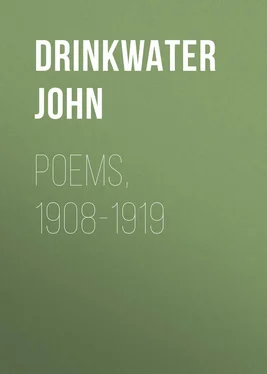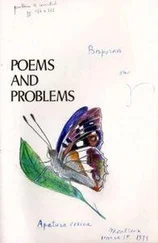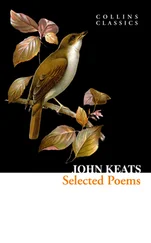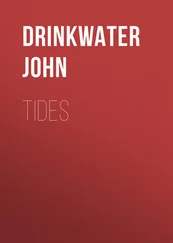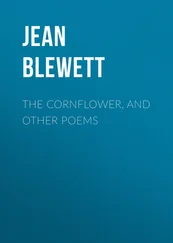John Drinkwater - Poems, 1908-1919
Здесь есть возможность читать онлайн «John Drinkwater - Poems, 1908-1919» — ознакомительный отрывок электронной книги совершенно бесплатно, а после прочтения отрывка купить полную версию. В некоторых случаях можно слушать аудио, скачать через торрент в формате fb2 и присутствует краткое содержание. Жанр: foreign_antique, foreign_prose, на английском языке. Описание произведения, (предисловие) а так же отзывы посетителей доступны на портале библиотеки ЛибКат.
- Название:Poems, 1908-1919
- Автор:
- Жанр:
- Год:неизвестен
- ISBN:нет данных
- Рейтинг книги:4 / 5. Голосов: 1
-
Избранное:Добавить в избранное
- Отзывы:
-
Ваша оценка:
- 80
- 1
- 2
- 3
- 4
- 5
Poems, 1908-1919: краткое содержание, описание и аннотация
Предлагаем к чтению аннотацию, описание, краткое содержание или предисловие (зависит от того, что написал сам автор книги «Poems, 1908-1919»). Если вы не нашли необходимую информацию о книге — напишите в комментариях, мы постараемся отыскать её.
Poems, 1908-1919 — читать онлайн ознакомительный отрывок
Ниже представлен текст книги, разбитый по страницам. Система сохранения места последней прочитанной страницы, позволяет с удобством читать онлайн бесплатно книгу «Poems, 1908-1919», без необходимости каждый раз заново искать на чём Вы остановились. Поставьте закладку, и сможете в любой момент перейти на страницу, на которой закончили чтение.
Интервал:
Закладка:
John Drinkwater
Poems, 1908-1919
RECIPROCITY
I DO not think that skies and meadows are
Moral, or that the fixture of a star
Comes of a quiet spirit, or that trees
Have wisdom in their windless silences.
Yet these are things invested in my mood
With constancy, and peace, and fortitude,
That in my troubled season I can cry
Upon the wide composure of the sky,
And envy fields, and wish that I might be
As little daunted as a star or tree.
THE HOURS
Those hours are best when suddenly
The voices of the world are still,
And in that quiet place is heard
The voice of one small singing bird,
Alone within his quiet tree;
When to one field that crowns a hill,
With but the sky for neighbourhood,
The crowding counties of my brain
Give all their riches, lake and plain,
Cornland and fell and pillared wood;
When in a hill-top acre, bare
For the seed’s use, I am aware
Of all the beauty that an age
Of earth has taught my eyes to see;
When Pride and Generosity
The Constant Heart and Evil Rage,
Affection and Desire, and all
The passions of experience
Are no more tabled in my mind,
Learning’s idolatry, but find
Particularity of sense
In daily fortitudes that fall
From this or that companion,
Or in an angry gossip’s word;
When one man speaks for Every One,
When Music lives in one small bird,
When in a furrowed hill we see
All beauty in epitome —
Those hours are best; for those belong
To the lucidity of song.
A TOWN WINDOW
Beyond my window in the night
Is but a drab inglorious street,
Yet there the frost and clean starlight
As over Warwick woods are sweet.
Under the grey drift of the town
The crocus works among the mould
As eagerly as those that crown
The Warwick spring in flame and gold.
And when the tramway down the hill
Across the cobbles moans and rings,
There is about my window-sill
The tumult of a thousand wings.
MYSTERY
Think not that mystery has place
In the obscure and veilèd face,
Or when the midnight watches are
Uncompanied of moon or star,
Or where the fields and forests lie
Enfolded from the loving eye
By fogs rebellious to the sun,
Or when the poet’s rhymes are spun
From dreams that even in his own
Imagining are half-unknown.
These are not mystery, but mere
Conditions that deny the clear
Reality that lies behind
The weak, unspeculative mind,
Behind contagions of the air
And screens of beauty everywhere,
The brooding and tormented sky,
The hesitation of an eye.
Look rather when the landscapes glow
Through crystal distances as though
The forty shires of England spread
Into one vision harvested,
Or when the moonlit waters lie
In silver cold lucidity;
Those countenances search that bear
Witness to very character,
And listen to the song that weighs
A life’s adventure in a phrase —
These are the founts of wonder, these
The plainer miracles to please
The brain that reads the world aright;
Here is the mystery of light.
THE COMMON LOT
When youth and summer-time are gone,
And age puts quiet garlands on,
And in the speculative eye
The fires of emulation die,
But as to-day our time shall be
Trembling upon eternity,
While, still inconstant in debate,
We shall on revelation wait,
And age as youth will daily plan
The sailing of the caravan.
PASSAGE
When you deliberate the page
Of Alexander’s pilgrimage,
Or say – “It is three years, or ten,
Since Easter slew Connolly’s men,”
Or prudently to judgment come
Of Antony or Absalom,
And think how duly are designed
Case and instruction for the mind,
Remember then that also we,
In a moon’s course, are history.
THE WOOD
I walked a nut-wood’s gloom. And overhead
A pigeon’s wing beat on the hidden boughs,
And shrews upon shy tunnelling woke thin
Late winter leaves with trickling sound. Across
My narrow path I saw the carrier ants
Burdened with little pieces of bright straw.
These things I heard and saw, with senses fine
For all the little traffic of the wood,
While everywhere, above me, underfoot,
And haunting every avenue of leaves,
Was mystery, unresting, taciturn.
And haunting the lucidities of life
That are my daily beauty, moves a theme,
Beating along my undiscovered mind.
HISTORY
Sometimes, when walls and occupation seem
A prison merely, a dark barrier
Between me everywhere
And life, or the larger province of the mind,
As dreams confined,
As the trouble of a dream,
I seek to make again a life long gone,
To be
My mind’s approach and consolation,
To give it form’s lucidity,
Resilient form, as porcelain pieces thrown
In buried China by a wrist unknown,
Or mirrored brigs upon Fowey sea.
Then to my memory comes nothing great
Of purpose, or debate,
Or perfect end,
Pomp, nor love’s rapture, nor heroic hours to spend —
But most, and strangely, for long and so much have I seen,
Comes back an afternoon
Of a June
Sunday at Elsfield, that is up on a green
Hill, and there,
Through a little farm parlour door,
A floor
Of red tiles and blue,
And the air
Sweet with the hot June sun cascading through
The vine-leaves under the glass, and a scarlet fume
Of geranium flower, and soft and yellow bloom
Of musk, and stains of scarlet and yellow glass.
Such are the things remain
Quietly, and for ever, in the brain,
And the things that they choose for history-making pass.
THE FUGITIVE
Beauty has come to make no longer stay
Than the bright buds of May
In May-time do.
Beauty is with us for one hour, one hour,
Life is so brief a flower;
Thoughts are so few.
Thoughts are so few with mastery to give
Shape to these fugitive
Dear brevities,
That even in its hour beauty is blind,
Because the shallow mind
Not sees, not sees.
And in the mind of man only can be
Alert prosperity
For beauty brief.
So, what can be but little comes to less
Upon the wilderness
Of unbelief.
And beauty that has but an hour to spend
With you for friend,
Goes outcast by.
But know, but know – for all she is outcast —
It is not she at last,
But you that die.
CONSTANCY
The shadows that companion me
From chronicles and poetry
More constant and substantial are
Than these my men familiar,
Who draw with me uncertain breath
A little while this side of death;
For you, my friend, may fail to keep
To-morrow’s tryst, so darkly deep
The motions mutable that give
To flesh its brief prerogative,
And in the pleasant hours we make
Together for devotion’s sake,
Always the testament I see
That is our twin mortality.
But those from the recorded page
Keep an eternal pilgrimage.
They stedfastly inhabit here
With no mortality to fear,
And my communion with them
Ails not in the mind’s stratagem
Against the sudden blow, the date
That once must fall unfortunate.
They fret not nor persuade, and when
These graduates I entertain,
I grieve not that I too must fall
As you, my friend, to funeral,
But rather find example there
That, when my boughs of time are bare,
And nothing more the body’s chance
Governs my careful circumstance,
I shall, upon that later birth,
Walk in immortal fields of earth.
Интервал:
Закладка:
Похожие книги на «Poems, 1908-1919»
Представляем Вашему вниманию похожие книги на «Poems, 1908-1919» списком для выбора. Мы отобрали схожую по названию и смыслу литературу в надежде предоставить читателям больше вариантов отыскать новые, интересные, ещё непрочитанные произведения.
Обсуждение, отзывы о книге «Poems, 1908-1919» и просто собственные мнения читателей. Оставьте ваши комментарии, напишите, что Вы думаете о произведении, его смысле или главных героях. Укажите что конкретно понравилось, а что нет, и почему Вы так считаете.
